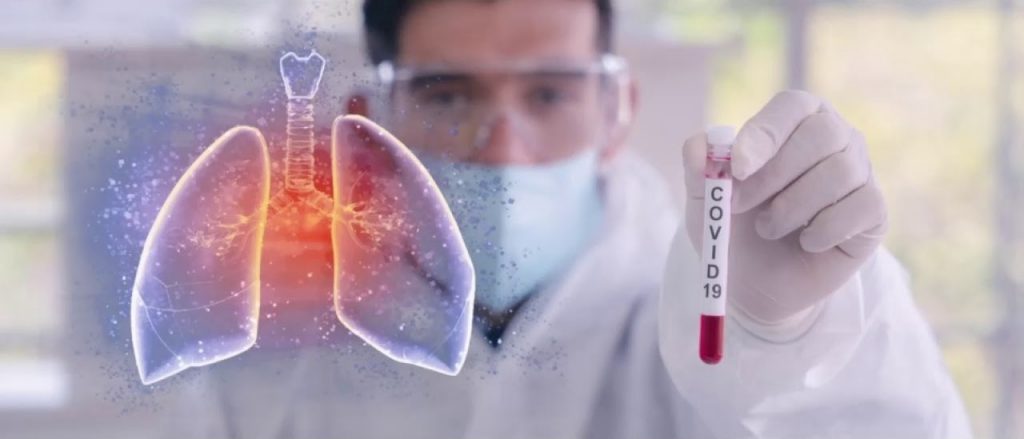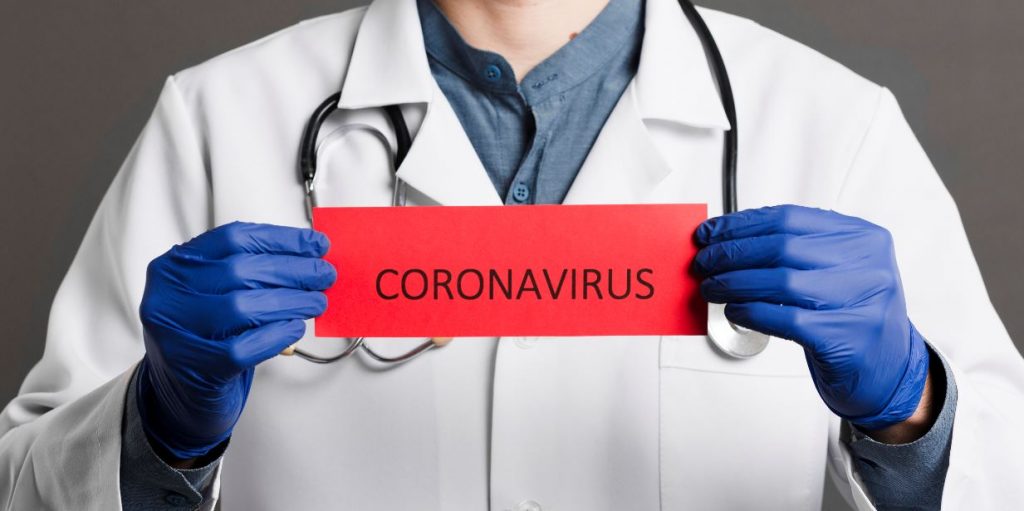Coronaviruses are a family of viruses that predominantly infect animals, but in some cases can be transmitted to humans. This is a long-known and studied group of viruses, however, like many others, these viruses mutate quickly enough, changing some properties.
Usually, diseases caused by coronaviruses proceed as usual ARVI in a mild form, without causing severe symptoms. However, there are severe forms, such as the Middle East Respiratory Syndrome (Mers) and Severe Acute Respiratory Syndrome (Sars).
Symptoms of a disease caused by a new coronavirus:
- Feeling of fatigue, weakness, aches;
- Labored breathing;
- Heat;
- Dry cough, sore throat.
Symptoms are nonspecific, that is, similar to many respiratory diseases, often mimic a common cold or flu.
If you have similar symptoms, consider the following:
- Have you traveled to high-risk areas in the past two to three weeks (China and surrounding regions, countries of southern Europe, such as Italy, Spain)?
- Have you been in contact with someone who has visited these areas?
If so, take maximum care of your symptoms, in no case try to bear the disease on your feet, try not to visit crowded places.
Can a new coronavirus be cured?
Yes, it can, but there is no specific antiviral drug for the new coronavirus – just like most other respiratory viruses that cause colds.
The main and most dangerous complication of coronavirus infection is viral pneumonia. It cannot be treated with antibiotics, treatment is aimed at maintaining lung function.
Who is at risk?
Everyone can become infected with the virus, including a child. A statement by the Wuhan Health Commission said that the age of the 60 most recent cases is between 15 and 88 years old. As with most other viral respiratory diseases, children under 3 years old, adults over 60 years old, people with weakened immune systems, and suffering from chronic obstructive pulmonary disease are at risk for complications.
Is there a vaccine for the new coronavirus?
Currently, there is no such vaccine, however, in a number of countries, including Russia, research organizations of Rospotrebnadzor have already begun its development.
Coronavirus and influenza virus may have similar symptoms, but genetically they are completely different. Influenza viruses multiply very quickly – symptoms appear two to three days after infection, and the coronavirus requires up to 14 days for this.
How is coronavirus transmitted?
Like other respiratory viruses, coronavirus spreads in two ways:
- airborne droplets – when drops from a patient’s sneezing and coughing fall on the mucous membrane of a healthy person,
- contact – through a handshake, touching the door handle or any other contaminated surface.
People become infected when they touch their mouth, nose, or eyes with soiled hands.
Initially, the current outbreak of coronavirus came from animals, presumably, the source was the seafood market in Wuhan, where there was an active trade not only in fish, but also in animals such as marmots, snakes and bats.

How to protect yourself from coronavirus infection?
- Most important: keep your hands and surfaces
clean.
- Keep your hands clean, wash them often with soap and water, or use a disinfectant;
- Always wash your hands before eating;
- Carry wet wipes and disinfectants.
- Avoid contact with a possible source of
infection.
- Try not to touch the mouth, nose or eyes (usually such touches are unconsciously performed by us on average 15 times per hour);
- At work, wipe or treat with special napkins surfaces that you often touch: keyboard, mouse, tabletop, remotes, door handles, etc .;
- In crowded places, airports, subways and other public transport systems – minimize the touch on surfaces and objects located in such places, and do not touch your face;
- Do not eat food (nuts, chips, cookies and other snacks) from common packages or utensils if other people dipped their fingers in them;
- Avoid complimentary handshakes and kisses on the cheek until the epidemiological situation has stabilized.
- Carry disposable wipes with you and always cover your nose and mouth when coughing or sneezing. Be sure to dispose of them after use.
- Wearing a disposable mask will not protect you from infection, but it can prevent you from infecting others if you are already a carrier of the virus.
What can be done at home?
- Tell
children about coronavirus prevention. Explain how germs spread and why good
hand and face hygiene is important.
- Make sure everyone in the family has their own towel; remind you not to share toothbrushes and other personal hygiene items.
- Ventilate the room frequently.
How is coronavirus diagnosed?
The Rospotrebnadzor scientific organizations less than 7 days after the appearance of information on the gene structure of the new coronavirus developed two variants of diagnostic kits for determining the presence of the virus in the human body. The kits are based on the molecular genetic research method, the so-called polymerase chain reaction (PCR).
Using this method gives test systems significant advantages:
- High
sensitivity: using developed test systems it is possible to detect single
copies of viruses.
- Convenient method of collecting material: to diagnose the disease there is no need to take blood, it is enough to take a sample from a nasopharynx with a cotton swab.
- Efficiency: the result of the analysis can be obtained in 2-4 hours.

Epidemic rules
Influenza, coronavirus infection and other acute respiratory viral infections (SARS) are in first place in terms of the number of people who become ill every year. Despite constant efforts aimed at combating the causative agents of influenza, coronavirus infection and other acute respiratory viral infections, they still cannot be defeated.
Thousands of people die every year from flu complications.
This is due to the fact that viruses, primarily influenza viruses and coronaviruses, have the ability to change their structure and a mutated virus can infect a person again. So, a person who has had the flu has a good immune barrier, but nevertheless, a new altered virus can easily penetrate it, since the body has not yet developed immunity against this type of virus.
A sick person should stay at home and not pose a threat of infection to others. Do your best to limit contact with other people. In order not to infect loved ones, use individual dishes, a towel, ventilate the room more often and wear a protective medical mask when communicating.
Prevention
The most effective way to prevent influenza is to vaccinate annually. The composition of the flu vaccine changes annually. First of all, vaccination is recommended for those at risk. The optimal time for vaccination is October-November. Vaccination of children against influenza is possible, starting from 6 months of age.
Vaccines against most pathogens of acute respiratory viral infections have not been developed.
Universal preventive measures
- Wash your
hands often and thoroughly.
- Avoid contact with coughing people
- Adhere to a healthy lifestyle (sleep, healthy food, physical activity)
- Drink more fluids
- Regularly ventilate and humidify the air in the room in which you are
- Less often in crowded places
- Use the mask when in transport or in public places
- Avoid hugs, kisses and handshakes when meeting
- Do not touch your face, eyes, nose with unwashed hands.
At the first sign of a viral infection – consult your doctor!